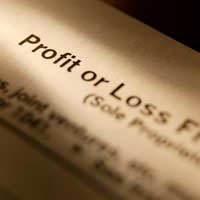Maximising Your Tax Deductions

Buy-to-Let may well seem like the key to your fortunes: the market is still on the rise, and rentals are strengthening. However, as any landlord will tell you, there are huge numbers of unexpected expenses which will eat away at your profits. As a result, it is vitally important to minimise costs wherever you can in the process. One of the key areas in which this is possible is taxation.
Self-employment
As a landlord you will be self-employed and, as such, will have to complete a self-assessment tax return. These words may fill you with dread but in fact, the self-assessment process gives you an excellent chance to recoup some of the money to which you are entitled from the taxman.In order to make the most of this opportunity, you will need to have kept good financial records - although of course, you should have been doing this anyway in order to be able to fully complete your tax return. It would make sense to begin with your largest deductible expense and then work down. One of your largest expenses is likely to be your mortgage payments; thankfully, however, you can count the interest on your mortgage as a tax deduction.
It is often thought that only loans which are secured against a buy-to-let property are tax deductible. This is not the case, however; rather, any loan which is used for the purpose of purchasing property to rent can be counted. So, if you remortgaged your existing home in order to buy property, you could claim back tax on the remortgaged portion of the loan. This can amount to a fairly large sum of money, and should therefore be your primary concern.
Maintenance costs
There are also numerous tax deductible expenses which are likely to be incurred after purchase. For example, any costs incurred through necessary repairs to your property can be claimed against. This is also the case for work which has not yet been carried out, but which you will have to perform in the next tax year, although this is only the case if you can prove that you are legally obliged to carry out the work.Another significant expense for private landlords is furnishing costs. A furnished property is likely to be let for a considerably larger monthly sum than the same property in an unfurnished state, but the initial costs of furniture can be extreme. It is important to note, therefore, that the 'wear and tear' allowance allows landlords to claim back around 10% of their rental income as a deduction. There is also a 'renewal and replacement' allowance, but this is generally only a more economical choice if you have to replace your furnishings regularly.
Incidentals
There are other incidental expenses which mount up, and which can be claimed as tax deductions. For example, if you perform most of your administration tasks from your home then you will be able to claim back a proportion of your bills, including utilities and insurance. Furthermore, you can claim deductions against travel costs, including those incurred by running a car. The amount you can claim through car costs depends on the proportion of time you use your car for business purposes, but is usually around 20%.Finally, it should be noted that it is possible to claim expenses which were incurred before you purchased your first buy-to-let property. If you have records, tax deductions are available on any expenses which occurred in the seven years before purchase, with the proviso that they must represent expenses which would be tax deductible if you were to incur them today. If this is the case, you can factor them into your accounts as if you spent the money on the first day of this financial year.
As you can see, there is a wide range of tax relief options available to private landlords. Keep good financial records, and there is no reason why you should not benefit from all of them.


Re: A Guide to Unemployment Benefits
I was made redundant in June 2019 and received a large payment which I have been living off. When can I claim unemployment…
Re: How Much Tax do I Have to Pay?
I have been doing a 7.5 hour job for 4 years, not paying tax or NI. I have recently started a job doing 16 hours a week. I…
Re: What is SERPS and What Was 'Contracting Out' ?
I was a young 17 year old just turning 18 . When i joined a oil exploration Seismic company which was a…
Re: How Much Tax do I Have to Pay?
Hi iv just started a cash in hand cleaning job I will be earning between £50 & £60 per week, will I have to pay tax on this?
Re: A Guide to Unemployment Benefits
Claiming new job seekers allowance if I work 16 per week will this affect my JSA. Thank you June Phillips
Re: A Guide to Unemployment Benefits
My daughter had a well paid job . on giving in her notice on that job for another job found that because of downturn of…
Re: How Much Tax do I Have to Pay?
I get 1100 take home pay I used to get 1400 on dole do you make it up loose 300 month for working
Re: How Much Tax do I Have to Pay?
I've worked 43 hours this month and had 51.78 tax took of me if this correct it seems to much to me..
Re: A Guide to Unemployment Benefits
I have just lost my job and want to sign on for Job Seekers Allowance. Since the LISA came in I have put the maximum amount…
Re: What is a Group Personal Pension?
I Have finally found my SERPS pension scheme. If I cash this in, will it have a effect on my state pension funds.